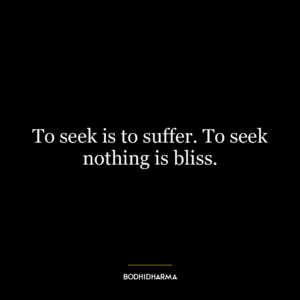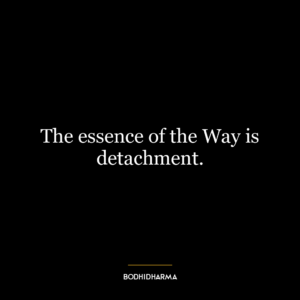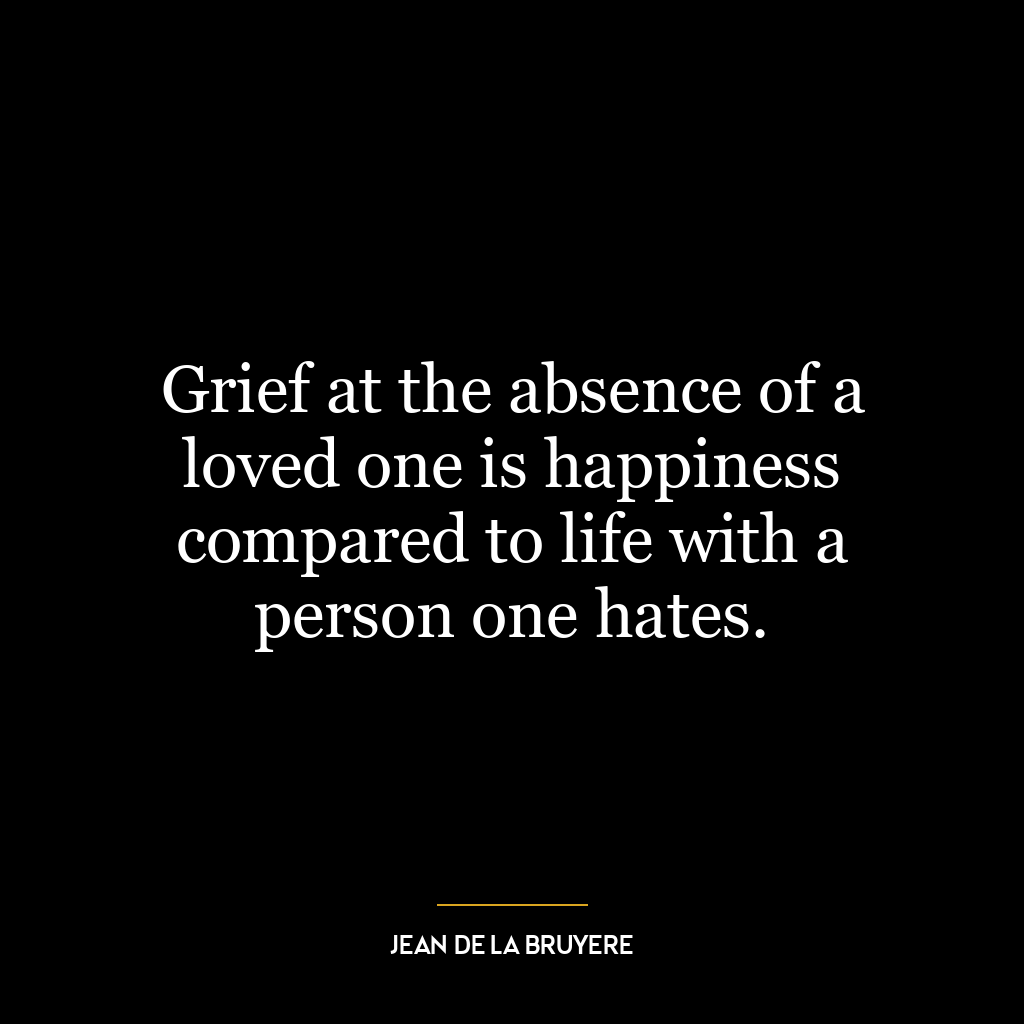And the Buddha is the person who’s free: free of plans, free of cares.
This quote emphasizes the concept of freedom as perceived in Buddhism, specifically the freedom from worldly concerns, worries, and plans. The Buddha, in this context, is not just a religious figure, but a symbol of ultimate liberation and peace. Being “free of plans” suggests living in the present moment, not being bound by the anxieties of the future or regrets of the past. Being “free of cares” implies a state of detachment from worldly desires and materialistic pursuits, which are often sources of stress and dissatisfaction.
In the context of personal development, this quote encourages mindfulness and being present. It suggests that true peace and happiness come from letting go of constant planning and worrying, and instead focusing on the present moment. This doesn’t mean one should abandon all planning or stop caring about anything, but rather not be consumed or controlled by these aspects.
In today’s fast-paced, achievement-oriented world, we often find ourselves constantly planning, worrying, and chasing after materialistic goals. This can lead to stress, anxiety, and a general sense of dissatisfaction. By applying the principles suggested in this quote, we can strive to achieve a state of mindfulness, where we live in the present, appreciate what we have, and free ourselves from unnecessary worries and desires. This can lead to a more peaceful, satisfied, and fulfilling life.










